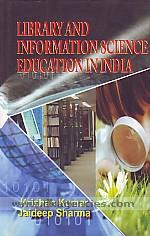The Worst:
I stumbled on a blog that presents awards if you have "The Worst Review Ever." And, today by surfing the Web, read one of the best reviews, by Dr. Ziauddin Sardar. [information courtesy: NewAgeIslam.Com]
To qualify what makes a 'worst review ever,' I have no choice to determine nor options to rate. Read the qualifications: 'BE A WORSTIE!' @ The Worst Review Ever. In addition, there are many blogs / sites that present: Best review EVER or Best * Worst book reviews or here. More on " best book review" is here
The Best:
And, to judge the best, one can look for best practices drawn by experts. A review is best if it has: (a) balanced perspective (visualizes strength, weakness, and commends), (b) presents a glimpse of what the book has as compared to the competitors in the market (with internal citation and external comparison), and (c) the reviewer knows the subject in-and-out (not just a superficial knowledge). All of this and much more is [in The Guardian, dated Saturday 21 June 2008)] Dr. Ziauddin Sardar's review of The Qur'an: A New Translation, by Tarif Khalidi, 'The eternal present tense':
"We look for two things in any new translation of the Qur'an. How close does it get to communicating the meaning of the original, that inimitable oral text, the very sounds of which move men and women to tears and ecstasy? And does it offer something more: a new perspective, perhaps; or an innovative rendering?On the same shelf books by Dr. Ziauddin Sardar:
Tarif Khalidi, a professor of Islamic studies at the American University of Beirut, scores high on both these criteria. He manages to capture the allusiveness of the text, as well as something of its tone and texture. While being faithful to the original, he succeeds in conveying linguistic shifts, from narrative to mnemonic, sermons to parables. And there is an innovative component: it is the first translation that tries to capture both the rhythms and the structure of the Qur'an.
The best way to demonstrate its newness, and how close it is to the original text, is to compare it with an old translation...
Khalidi wants the reader to enjoy the experience of reading the Qur'an. Of course, he wants to communicate the majesty of its language, the beauty of its style, and the "eternal present tense" of its grammar. But he also wants the reader to appreciate the Qur'an's unique structure, how the language changes with the subject matter, how it swirls around and makes rhythmic connections. He wishes to show how each of the seven tropes of the Qur'an (command, prohibition, glad tidings, warnings, sermons, parables and narratives) registers a change in the style of its language. A lofty ambition, but one he pulls off with some success....
Continue reading The Eternal Present Tense
 Available @ Amazon.com
Available @ Amazon.com





 More about (my new home) Google sites and the old home, READ
More about (my new home) Google sites and the old home, READ